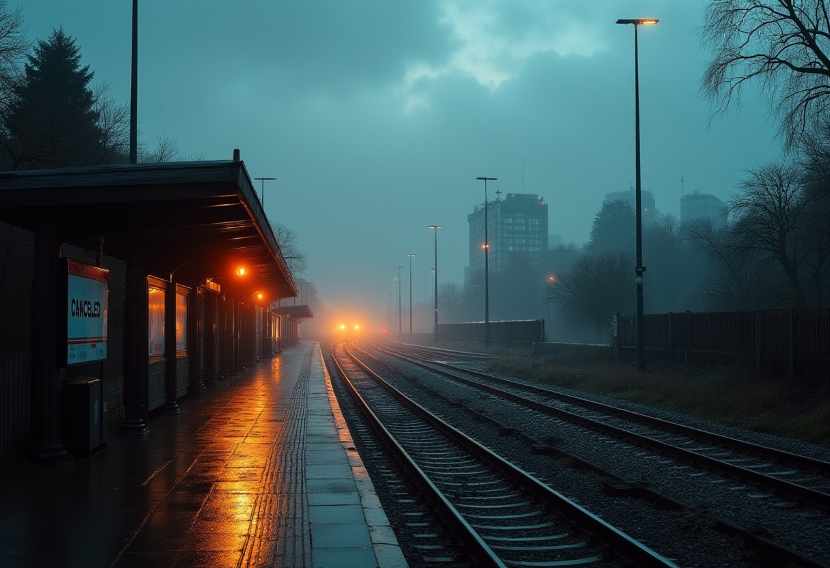Catastrophic Storm Floris Batters UK and Ireland, Mass Power Outage Disrupts Rail Travel, New Update is Here


As Storm Floris sweeps across the UK and Ireland, its winds—gusting to 90 mph—are battering vital travel arteries and pressing the tourism and transport sectors into crisis. The Met Office has issued danger-to-life alerts, and the consequences are arriving in the form of shuttered transport routes, regional power failures, and the abrupt scrapping of numerous events. Such disturbances are striking both visitors and residents alike, underscoring how the intensifying frequency of severe weather is steadily rewriting the playbook for travel and tourism businesses.
The storm’s onslaught has conspicuously exposes vulnerabilities in rail and aviation networks, complicating every stage of the journey chain. Compulsory travel warnings remain in place, forecasting additional setbacks as the front accelerates toward the east. For visitors arriving or departing the islands, the situation has quickly escalated from mild inconvenience to outright rebooked itineraries and lost deposits. The cascading nature of the disruptions—train strikes propagating into terminal delays, and grid outages complicating last-mile connections—has left tourists contending with anxiety as primary sectors of the travel economy confront their limits.
Widespread Travel Disruptions: Train Cancellations and Power Outages
With winds gusting at 90mph in some areas, the UK and Ireland are facing severe travel disruptions. Network Rail has warned that train services in Scotland will remain severely disrupted into Tuesday, with fallen trees on tracks and damage to overhead wires. The storm’s ferocity has forced the cancellation of many trains, particularly in northern England and Scotland, areas most affected by the storm’s peak wind speeds.
In Scotland alone, more than 22,000 homes have been left without power, with areas such as the Highlands and north-east of Scotland bearing the brunt of outages. Scottish and Southern Electricity Networks (SSEN) have been working to restore services, but the scale of the damage means that restoration could take several more days.
The disruption isn’t limited to trains. Flights to and from major UK airports, including Heathrow and Gatwick, were delayed or canceled, leaving passengers stranded. In Ireland, approximately 10,000 homes were affected by power cuts, particularly in rural areas like Donegal, with flights and ferries also facing cancellations. The impact on airports and ferry terminals has led to long lines and frustrated passengers, particularly during a busy travel period.
For tourists, these disruptions have not only delayed their journeys but also affected pre-booked accommodations and tours. Many visitors have had to cancel or rearrange their travel plans at the last minute, with some opting for emergency accommodations as they wait for the storm to pass. Local tourism offices and hospitality businesses are working hard to manage the flow of new reservations and cancellations, but the weather-related issues have put a strain on resources.
Events and Festivals Affected by the Storm
Beyond travel and transport, the storm has also disrupted local events, further affecting the tourism industry. In Edinburgh, the annual Military Tattoo parade was canceled due to safety concerns, and the ongoing Edinburgh Fringe Festival saw performances impacted by the weather. However, some events, such as the Oasis concert in Edinburgh, are still scheduled to go ahead, demonstrating the flexibility of the local event industry in managing severe weather conditions.
The storm’s impact on festivals and events is a stark reminder of how unpredictable weather can interfere with the tourism calendar. Rethymno, a popular location for international tourism, also faces challenges as it prepares for large-scale events. While sports tournaments and festivals in places like Rethymno and the surrounding areas had contingency plans, smaller-scale local festivals have had to suspend operations. This has led to a dip in footfall for certain attractions and a lower than expected turnout for events, such as the Socca Champions League and Aegean Cup, which had been expected to draw large crowds from across the region.
Local and Global Tourism Impact
For the tourism industry, the storm represents a growing challenge, as weather-related disruptions can lead to significant economic losses. In addition to direct impacts on accommodation and transport sectors, businesses in Rethymno, Edinburgh, and other tourist-centric cities are feeling the ripple effects. With weather-related closures and cancellations, many tourists are finding themselves having to make alternate plans, either departing earlier or extending their stays while waiting for conditions to improve.
Storm Floris also highlights the importance of resilience planning in the tourism industry. For many locations, particularly those that rely on outdoor festivals, activities, and natural attractions, weather events like this underline the need for flexible scheduling, diversified offerings, and real-time customer service solutions. Rethymno, for example, has adapted by offering indoor cultural activities and discounts on services to encourage visitors to stay, even as storm warnings remain in place.
Moreover, the storm affects more than just the immediate region. Tourists who had planned to visit the UK or Ireland from overseas may reconsider their travel plans, particularly as warnings and travel chaos continue. This could affect the broader tourism landscape, leading to declines in bookings and shifts in consumer behavior toward more stable destinations.
The Long-Term Outlook for Tourism and Sports Events
As Storm Floris continues to batter the UK and Ireland, the long-term implications for tourism will depend on how quickly services are restored and how effectively local economies can recover from the damage. For the tourism industry, recovery efforts will include managing customer service complaints, ensuring safe travel routes, and promoting local attractions and events that continue despite the weather.
The role of sports tourism is particularly important in this context. Events like the Socca Champions League, which took place in Rethymno, offer a model for how sports can be integrated into tourism recovery efforts. These events not only provide entertainment but also generate significant economic activity in the local area, benefiting businesses, hotels, and restaurants that rely on the influx of visitors.
As weather patterns become more unpredictable with climate change, the tourism industry will need to increasingly prioritize weather resilience. From developing contingency plans to leveraging technology for real-time updates, the ability to handle such disruptions effectively will determine the long-term sustainability of tourism in regions prone to extreme weather.
Conclusion: Navigating Storms in the Tourism Industry
Storm Floris has certainly unsettled travel schedules and tourism arrivals across the UK and Ireland, yet it has also underscored the critical need for resilient infrastructure and strategic thinking within the sector. Destinations such as Rethymno and Edinburgh, alongside other iconic urban hubs, must now prioritise the capacity to absorb and respond to such shocks if they are to secure sustained visitor interest and economic vitality. A concerted strategy that integrates sporting events, cultural diplomacy, and communal participation can help offset the deterrent effect of severe weather. When these elements are synchronised with advanced contingency planning, sector-wide cooperation, and adaptive delivery of services, the industry can not only withstand the disruptive force of storms like Floris but also emerge with enhanced competitive advantage. Each episode of climatic turbulence thus becomes a catalyst for more inventive and robust modes of production and promotion.
The post Catastrophic Storm Floris Batters UK and Ireland, Mass Power Outage Disrupts Rail Travel, New Update is Here appeared first on Travel And Tour World.






